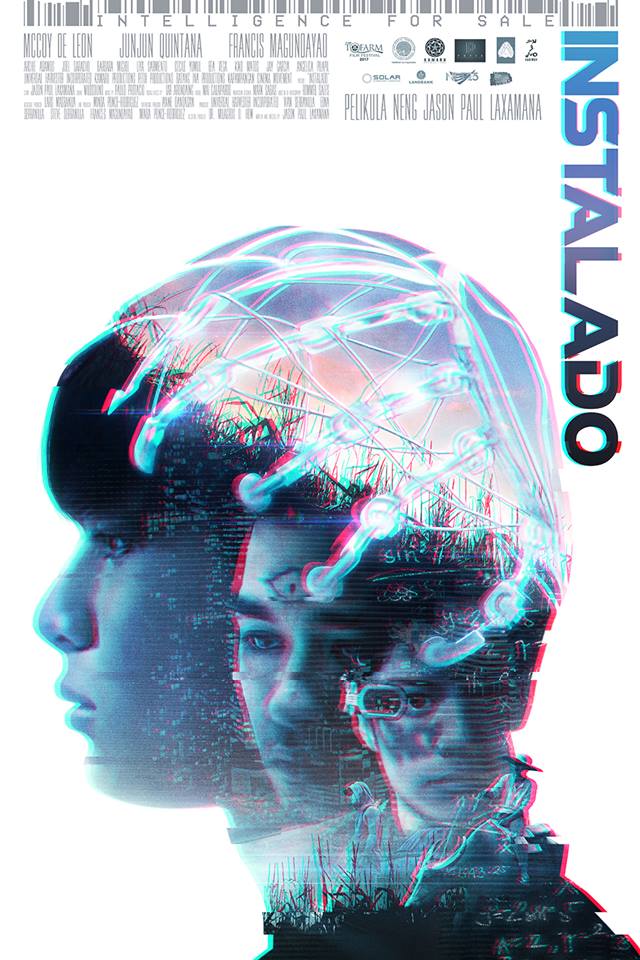By ZYMON ARVINDALE R. DYKEE

STEMMING FROM a dream of a fast-paced progression, the Chinese took the initiative to revamp the process of learning. From this initiative bore the “installation,” the process of stocking knowledge directly inside people’s brains. Despite gaining popularity and having been adopted by countries all over the globe, the process, however, comes with a price for humankind.
Jason Paul Laxamana’s sci-fi entry Instalado for the second ToFarm Film Festival thrusts the viewers into a reimagined futuristic world, where the Philippines, despite its provinces remaining reduced into rubble, has acquired advanced technology, including the installation, to rebuild Manila and educate its citizens. From the dry plains of Pampanga, Kapampangans witness a hologram of skyscrapers populating the capital. It is this initial scene in which Laxamana subtly foregrounds not only the central conflict of the plot but the saddening societal situation: the division between the rich and the poor, whereas the poor can only wish for a miracle to experience the life in the city, and the rich are looking down at them.
Victor (McCoy de Leon), a teenager who is used to plowing the fields with a carabao and sleeping with his family inside a small hut, belongs to the dreaming poor. That is until he comes across Arnel (Junjun Quintana), his childhood friend who has driven to the province with a red car. After learning that his friend has several courses installed in his brain and garnered diplomas in the form of small glowing cards, Victor realizes that he is fed up of his monotonous life. The idea of claiming the title of “insta” poisons his mind to pursue the same path, while the idea of becoming a “gra-gra” or people who have graduated in universities, is now a thing of the past.
Meanwhile, in a company located in a well-off district works the wealthy 15-year-old insta Danny (Francis Magundayao). Dissociating himself from his Kapampangan roots, he adopts with his artificial cleverness an authoritative and dictatorial attitude toward people who are unable to afford the installation.
Victor and Danny’s blending and unblending are essential in reiterating the film’s conflict. On one hand, since it incorporates characters existing on each of the poles of the societal strata, the film vivifies the enduring division between the rich and the poor. On the other hand, disallowing both characters to cross paths in the story delineates the impossibility of the impoverished to reach the state of the well-off. This is where the film is anchored—on zooming into the distance the lower class will laboriously tread before breaking free from the oppression by the upper class.
Laxamana makes his film more striking by breathing humanism into Victor. Since installation costs a hundred thousand per course, he searches for easy ways out: plead to his father to lend him money, work as a servant to Arnel, join the free installation raffle, and even rob his friend. These acts of despair make Victor more human, whereas, he is susceptible to the blinding shimmer of his desire, which is to escape the shackles of poverty. Thus, the film portrays to its viewers a test of morality—what for the greater life one can trade, which is revealed to result in insanity—magnified through a young man whose maturity is still being weighed.
Instalado offers a fresh take on the perennial perpetuation of poverty in the Philippines. Through science fiction and the magnification of the issue of education as a privilege, it defamiliarizes the notion that classism still persists, that the famished is further forced into the far end of the societal spectrum, and the eradication of poverty is unrealizable. F



